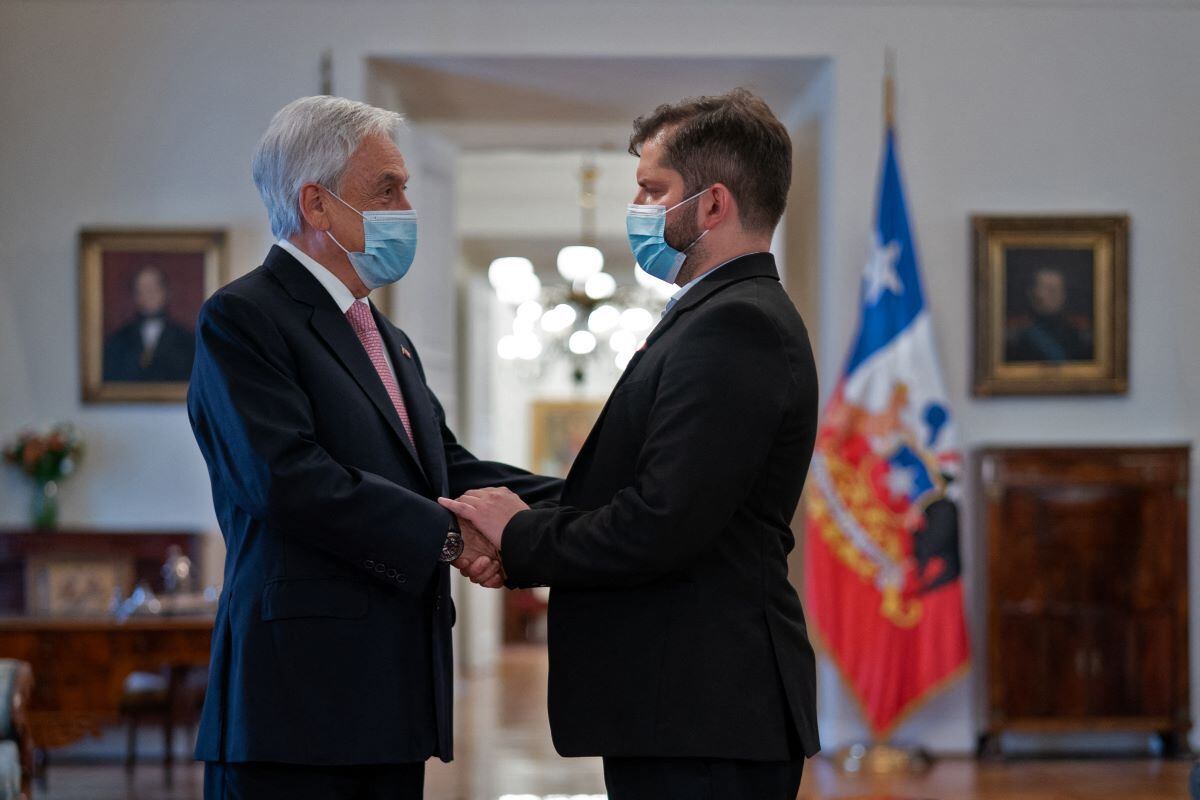
The Chilean president, Sebastián Piñera, twice president of his country, says goodbye to power after four years marked by the social outbreak, the management of the pandemic, the economic crisis, the discussion of a new Constitution, the conflict in Araucanía and an unprecedented migration crisis.
The president arrived at La Moneda in 2017 at a time when the Chilean right wing came to government with a vocation for “counter-reform”, seeking to “deepen the free market” in the face of the changes previously promoted by the Bachelet Administration, recalls the doctor in Political Science and academic of the Diego Portales University, Rodrigo Espinoza,
However, experts agree that the current government lost the initiative since the end of 2019 due to the social unrest, the most serious political crisis in the last 30 years that left the Executive without the ability to maneuver and a balance of thousands of injured, hundreds of eye trauma from police shooting and dozens of deaths.
“Piñera, with his unfortunate statement that “we are at war” in the midst of the protests, declaring war on civil society mobilized in a mostly peaceful manner, and violent in some cases, closed the door to the constituent process,” he said. Spinoza.
“It is striking that Piñera does not lead any of the relevant processes from the social outbreak, after which the agreement for the new Constitution arises. These agreements are reached by the opposition with sectors of the ruling party, but without the initiative of the president”, points out Octavio Avendaño, an academic from the sociology department of the University of Chile.
Human rights
The 2019 protests, which were contained after the agreement to create the Constitutional Convention, were marked by strong police repression and widespread human rights violations denounced by groups such as Human Rights Watch (HRW) and Amnesty International (AI).
“It is a government that leaves a fairly negative balance from the point of view of national coexistence due to human rights problems that were registered after the outbreak. Many have spoken of impeachment of the president and that is most likely to happen. It is a quite controversial legacy, with unresolved things,” said Avendaño.
Militarization North and South
The northern border with Peru and Bolivia has been the scene since February 2021 of an unprecedented migration crisis that combines a lack of basic goods, a collapse of infrastructure and local discontent that has fueled xenophobia.
Only a year later, the outgoing government decreed a state of emergency, militarized the border on the high plateau, but without providing the means to those who try to solve the increasingly acute humanitarian problems.
A plan similar to the one tried in the south, where Mapuche groups fight against large agricultural and forestry companies to which the Government granted the exploitation of lands considered ancestral.
“One of the campaign themes in both 2010 and 2017 was to ensure greater control of public order and combat crime. Something that does not happen because the levels of violence that are often associated with criminal acts intensify,” said Avendaño.
“Artificial revival”
With the largest drop in GDP in four decades as a result of the pandemic, reaching 5.8%, the Chilean economy is deteriorating and with a slow recovery, a process that the Central Bank already outlined as fragile due to a sharpening of inflation.
“Demand via consumption has been reactivated, but there is no productive economic investment that allows generating more employment. This is risky considering the international situation where we are going to see an increase in the price of the dollar and be in the presence of restrictions on some products that for some time have mainly depended on international trade,” Avendaño said.
Promoted through withdrawals from pension funds that to date reach more than US$ 50,000 million in total, which has momentarily solved the liquidity problems of Chilean families, but accentuated phenomena that less than a decade ago were controlled : Chile has the largest number of informal camps in 25 years with 600,000 families without access to a decent home.
Pandemic Control
With a voluntary and free inoculation campaign, extended throughout the national territory, Chile stands out as one of the most successful countries in the immunization process against SARS-CoV-2.
An effort that means that more than 93% of the population has a complete vaccination schedule and that a similar number has received the reinforcement, but that has not prevented the different waves from hitting the country with force.
And that the pandemic has left a scenario of economic fragility that could underpin the war in Ukraine.
Source: Gestion
Ricardo is a renowned author and journalist, known for his exceptional writing on top-news stories. He currently works as a writer at the 247 News Agency, where he is known for his ability to deliver breaking news and insightful analysis on the most pressing issues of the day.











